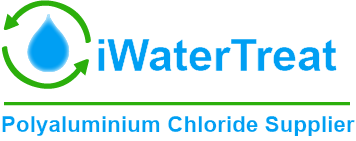Basic aluminum chloride (BAC) is also a kind of polyaluminum chloride (PAC). The appearance of basic aluminum chloride (BAC) is black powder or granules. It is a high-valent polyelectrolyte coagulant of inorganic polymer, which can be considered as the intermediate hydrolyzate between aluminum trichloride and aluminum hydroxide. Can be used for deodorization, decolorization, defluorination, turbidity removal, and treatment of heavy metal salts and radioactive pollutants. Widely used in the purification of various sewage.

Basic aluminum chloride is an inorganic polymer coagulant produced and applied in the 1960s. It is refined, processed, and polymerized using industrial aluminum ash and by-product hydrochloric acid as raw materials. The product has high activity and has a good purification effect on industrial wastewater, papermaking wastewater, printing, and dyeing wastewater. The formation of flocs is fast and the settling speed is fast. It has a series of advantages such as less dosage, high purification efficiency, and low cost.

The basic aluminum chloride floc has the advantages of fast formation, good activity, and good filterability. No alkaline additives are required. It has the characteristics of wide pH value, strong adaptability, and a wide application range. It contains high potency ingredients for easy storage and transportation.
Basic aluminum chloride has many advantages, but one disadvantage. Basic aluminum chloride will bring ammonia nitrogen pollution to water, which is related to its raw materials. Aluminum ash contains aluminum nitride. In the production process, it reacts with hydrochloric acid to generate ammonium chloride, which is finally dried to form basic aluminum chloride products. Therefore, basic aluminum chloride is not suitable for environments with high requirements for ammonia nitrogen control, such as urban domestic sewage treatment.
If you need basic aluminum chloride, you can contact us~

Next time I read a blog, Hopefully it wont fail me as much as this one. After all, Yes, it was my choice to read through, however I truly thought you would probably have something useful to talk about. All I hear is a bunch of complaining about something you can fix if you were not too busy seeking attention.